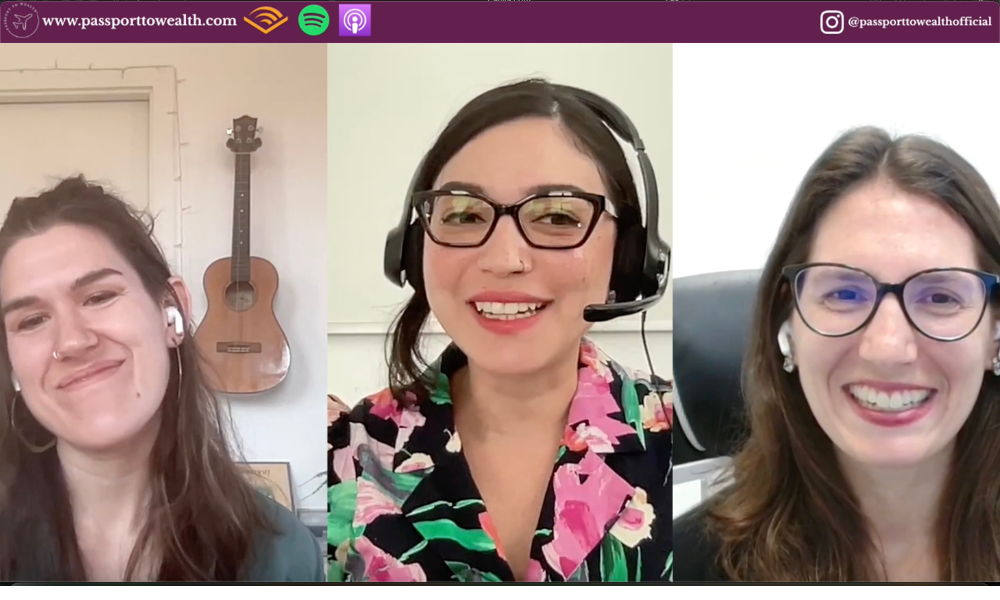What US Citizens Need to Know Before Moving To Germany
More Americans are leaving the US to start fresh in Europe, and Germany has become one of the top destinations for US expats. With a strong economy, affordable healthcare, and a high quality of life, it is no surprise many Americans are considering Germany as a new home.
In this episode of Passport to Wealth™, host Arielle Tucker, CFP®, EA interviews Hannah S. and Hena Vega Larios, immigration specialists who guide expats through the complex German visa and relocation process. They share insights on everything from visas for Americans moving to Germany to cultural adjustments that can make or break an international move.
Why Americans Are Moving to Germany
For years, most Americans relocated to Germany on company-sponsored transfers, but Hannah and Hena are now seeing more people take the leap independently. US expats today are arriving to:
- Study at German universities
- Launch careers in Europe
- Start fresh with a better work-life balance
“More US citizens are moving on their own, whether for jobs, education, or lifestyle changes,” explained Hena.

Immigration Challenges for US Expats
Even with the benefits of moving to Germany, immigration is rarely simple. Hannah, who moved from the US to France and then Germany, knows firsthand how confusing the system can be.
Key challenges include:
- Language requirements: Spousal visas often require proof of German language skills before arrival.
- Paperwork: Apostilles, certified translations, and notarized certificates are common requirements.
- Housing shortages: In cities like Berlin, expats may compete with 50 or more applicants for one apartment.
“There is no skipping steps in Germany,” Hannah explained. “Planning and preparation make all the difference.”
The Opportunity Card: A Path for Americans
A major update for Americans considering Germany is the Opportunity Card (Chancenkarte). This visa allows foreigners to move to Germany and search for a job, without needing an offer in advance.
To qualify, applicants typically need a degree or apprenticeship, plus savings of about €12,000. The visa lasts one year and permits part-time work while searching.
This makes Germany one of the most accessible European countries for US expats ready to build a new life.

Tips for Americans Moving to Germany
Hannah and Hena offered practical advice for US expats planning a move:
- Gather documents before leaving the US, including certified translations.
- Begin learning German early, even through apps or YouTube “slow German” lessons.
- Budget with euro-dollar fluctuations in mind.
- Research cost-of-living differences, including savings on healthcare and childcare.
- Consider professional relocation support to save time and reduce stress.
Expat Life in Germany
For many US expats, the lower cost of childcare, accessible healthcare, and slower pace of life make Germany an attractive alternative to the US. But Hannah reminds newcomers not to expect their American lifestyle abroad.
“You cannot take your American life and just move it here,” she said. “If you try, you will be frustrated. Germany is different, and that is the opportunity.”
Final Advice for US Expats
Both experts emphasized the same message: plan early and stay flexible.
“Germany offers many options for Americans who want to work, study, or raise families here,” Hena said. “The more you prepare before arrival, the easier your transition will be.”

Connect with Our Guests
Learn more about Hannah S. and Hena Vega Larios and their immigration expertise at StartCon.
More About Our Author
Arielle Tucker, CFP®, EA is the host of Passport to Wealth™ and a cross-border financial planner. She helps Americans abroad simplify their finances and create intentional, global lives. With firsthand experience managing international taxes and relocation, Arielle provides clarity and confidence for US expats at every stage of their journey.
Thinking of moving abroad? Explore more expert conversations on the Passport to Wealth™ podcast.
